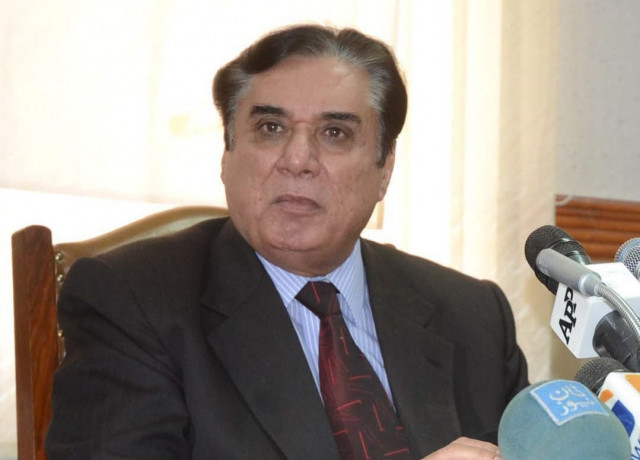NAB chairman regrets politicisation of missing persons issue
Justice (retd) Javed Iqbal says 5,290 cases registered with the missing persons commission

Justice (retd) Javed Iqbal. PHOTO: PPI / FILE
Briefing the Senate Standing Committee on Human Rights, Iqbal also insisted that the issue of missing persons had become a political problem. “Politicians always raise the issue of missing persons but unfortunately they forget it the moment they come to power,” he added.
In his maiden address to the nation, Prime Minister Imran Khan spoke at length on issues ranging from introducing reforms in education and health sectors and from fighting corruption to restoring the dignity of the common man. However, Khan was criticised for overlooking the issue of missing persons.
The phenomena of enforced disappearances began after the 9/11 attacks in 2001 when Pakistan joined hands with the US-led collation to remove the Taliban regime in Afghanistan.
Human rights groups and victim families often accused the security agencies for misusing the anti-terror laws to illegally abduct common citizens.
Foreign spy agencies behind ‘enforced disappearances’ not ISI, MI: NAB chief
In today’s briefing, the head of the missing persons’ commission said that a total number of 5,290 cases of enforced disappearances were registered with the commission, out of which the commission has solved 3,462 and presently 1,828 cases of missing persons are under investigation. Out of the total number of missing persons, the number of missing persons from Balochistan is 131, he added.
Iqbal said he served as district judge in Balochistan and hence knew every nook and corner of the province.
Rebutting the claims of some activists that thousands of people went missing from Balochistan, Iqbal insisted that many people were abducted on personal enmity but they laid the blame on security agencies.
A number of people also found asylum in foreign countries along with Hyrbyair Marri and Brahamdagh Bugti. But their names were also included in the missing persons’ list, he told the Senate panel.
Similarly, many people who went to Afghanistan along with Sufi Mohmmad, Mangal Bagh and Mullah Fazlullah were also reported as missing persons.
Alluding to the role of foreign hostile agencies, Justice (retd) Iqbal said external enemies would certainly exploit a country, which had internal weaknesses and always begging bowl in the hands.
“We even have been unable to get the information from our neighbours about the number of Pakistanis currently languishing in Nangarhar and Paktika jails,” he said, adding that even Afghan authorities did not have any control over those prisons.
In Sindh, as many as 1,357 cases of missing persons were reported during last seven years. However, according to the commission, only 183 people were missing at present.
Most of the missing persons belonged to the Muttahida Qaumi Movement (MQM), he said. Iqbal further said the Sindh government had not yet enacted any law with regards to the missing persons. “They did not do anything except wearing black arm bands,” he lamented.



















COMMENTS
Comments are moderated and generally will be posted if they are on-topic and not abusive.
For more information, please see our Comments FAQ